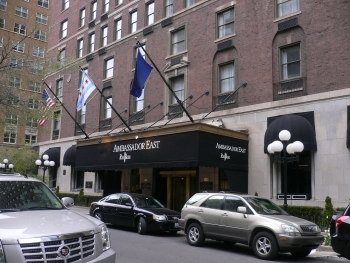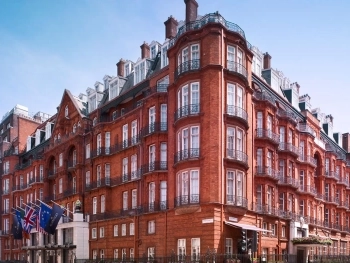Thomas Mann (6 June 1875 – 12 August 1955) stands as a towering figure in German literature, renowned for his intricate narratives and insightful critiques of society. Beyond his literary contributions, Mann's life was deeply intertwined with various hotels, which often served as settings that inspired his creative works.
Born into a family of intellectuals, Mann's literary journey began with his exploration of highly symbolic and ironic narratives. His keen insight into the human psyche, particularly that of artists and intellectuals, is evident in his series of epic novels and novellas. Throughout his career, Mann drew inspiration from a diverse array of sources, including modernized German and Biblical stories, as well as the philosophies of Goethe, Nietzsche, and Schopenhauer.
Mann's connection to hotels as settings for his narratives is a fascinating aspect of his life. In 1905, during his honeymoon with his wife Katia, Mann stayed at the luxurious Hotel Baur au Lac in Zurich, Switzerland. Immersed in opulence, Mann contemplated setting his novel "Confessions of Felix Krull" at the Baur au Lac but ultimately chose the Parisian elegance of the Hotel St. James et Albany as its backdrop. However, the allure of the Baur au Lac drew Mann back in 1947 and again in 1949 following his American exile.
The Hotel des Bains in Venice, Italy, also left an indelible mark on Mann's literary imagination. This elegant establishment on the Lido served as the inspiration for Mann's "Death in Venice," a haunting tale of obsession and decay. Mann's wife, Katia, attested to the authenticity of the novel's setting, stating that every event depicted in the story "really occurred." Despite its closure in 2010, the Hotel des Bains continues to live on through Mann's evocative prose.
In 1912, Mann found himself at the Waldhotel Davos in Switzerland, where his wife was undergoing treatment for a lung ailment. This experience laid the groundwork for his magnum opus, "The Magic Mountain" (Der Zauberberg). Originally conceived as a shorter narrative reminiscent of "Death in Venice," Mann expanded the scope of the novel to reflect his introspective musings on European society, particularly in the wake of World War I. The Waldhotel Davos served as the backdrop for the novel's opening chapter, symbolizing both the physical and metaphorical journey of its protagonist.
As political turmoil engulfed Europe in the 1930s, Mann sought refuge at the Waldhotel National in Arosa, Switzerland. Initially a guest in 1933, Mann and his family returned in 1936, making the hotel their first place of exile. Faced with the looming threat of Nazi Germany, the Manns found solace and safety within the confines of the hotel, shielding themselves from the dangers that awaited them beyond its walls.
In retracing Thomas Mann's literary footsteps through these hotels, one gains a deeper appreciation for the symbiotic relationship between the author and his surroundings. From the opulent halls of Zurich to the tranquil retreats of Davos and Arosa, each hotel served as a crucible of inspiration, shaping Mann's literary vision and enriching the tapestry of German literature for generations to come.


